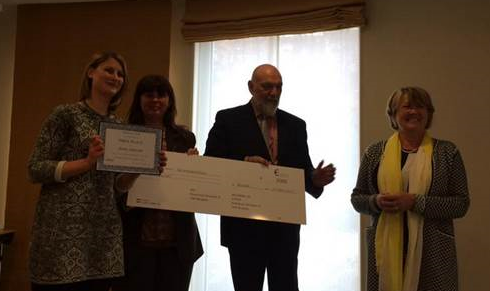Every year the European Public Affairs Consultancies’ Association (EPACA) organises an essay contest for young Public Affairs professionals to discuss a topic of relevance to the industry. This year, EPACA wanted to know participants’ ideas on how to improve public trust in EU public affairs. A question key to Public Affairs professionals and which makes us rethink our relation to and responsibility towards a critical actor in European politics: the European people.
After all, EU citizens remain the pillar of the European Union. Their voice, whether it is dimmed or amplified by their national and European representatives, remains the fundamental source of legitimacy for any politician and stakeholder involved in politics. Indeed, without a certain level of approval from the European general public, individuals or organisations who want to impact on EU affairs loses significant support and credibility; and the more those are lost at the bottom, the more limited the effect at the top will be. Hence why public trust in EU public affairs is so critical, and why it is essential for businesses to keep thinking about what it takes to ensure and improve it. Our research executive Anne Sauviat was the winner of the EPACA Essay Competition and provided some answers to this challenging but crucial question.
How to improve public trust in EU public affairs?
To what extent are EU public affairs public? Which ‘public’ is actually encompassed under such appellation? These are important questions when thinking about the issue of public trust in EU public affairs for a reason: trust comes from a feeling of inclusion, which itself encompasses both a physical and symbolic dimension.
Apathy and skepticism have increasingly taken over public opinion on European politics. This mistrust is notably due to Europeans feeling alienated from a political environment and process they expect to be integral to. Yet, many perceive European politics as unreachable and incomprehensible conversations between political, economic and industrial elites. In this context, public affairs consultancies mainly appear as illegitimate intermediaries influencing EU politicians for private stakeholders ‘ interests.
Thus, building trust in EU public affairs necessitates overcoming the negative connotation they often assume. The notion and activity of lobbying should be brought back to its original meaning and purpose: providing decision-makers with practical information on topics they are not necessarily fully aware of, and informing them of the demands from the various groups of the civil society they represent. European public affairs would be better acknowledged if they were given a more ‘positive’ definition and if their relevance for both public and private entities were promoted.
Public trust also relies on the transparency of the information and services exchanged by the various actors (in)directly involved in the European political process. Giving accessibility to such data helps the public better understand and confide in the reliability of politically-invested individuals and organisations.
Finally, beyond the status of witnesses, European citizens should be more extensively and actively included in the public affairs debates. The new methods of communication and wide range of social media can significantly contribute to the ‘re-democratisation’ of European public affairs and their relative re-appropriation by the general public.
Anne Sauviat
1
Find Out More
-
Generative AI is changing the search game
May 8, 2025
-
The challenges facing Europe and European leaders at Davos 2025
January 24, 2025




May 28, 2015 | 5:54 PM
RT @fleishmanEU: How to improve public trust in EU public affairs? A question answered by FleishmanHillard : http://t.co/NlHt0omzSf